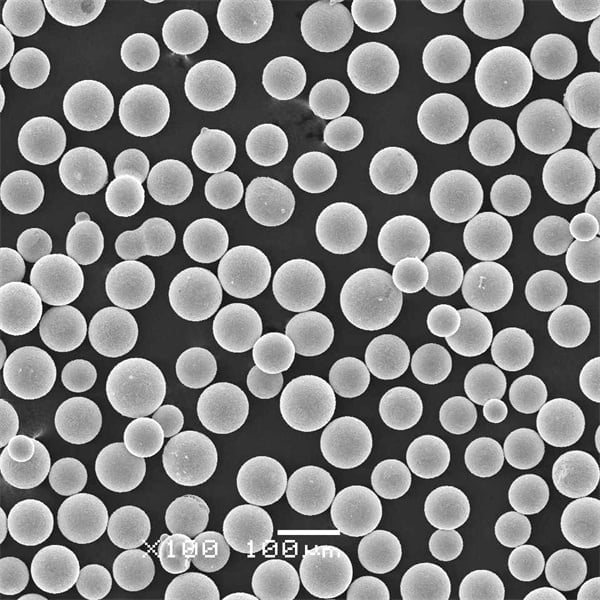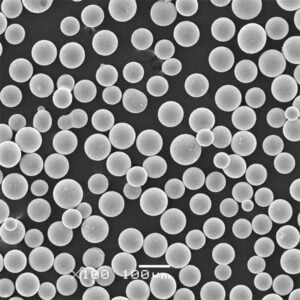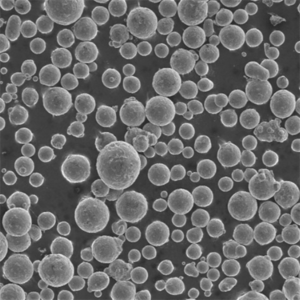Aluminium AlSi12 Pulver
Aluminium AlSi12-pulver är ett aluminiumlegeringspulver som innehåller 12% kisel som sitt huvudsakliga legeringselement. Det är känt för sin utmärkta flytbarhet, låga smältpunkt och goda korrosionsbeständighet. Den här guiden ger detaljerad information om AlSi12-pulvermetallurgi, dess sammansättning, egenskaper, produktionsmetoder, applikationer och leverantörer.
Låg MOQ
Tillhandahålla låg minsta orderkvantitet för att möta olika behov.
OEM & ODM
Tillhandahålla kundanpassade produkter och designtjänster för att tillgodose unika kundbehov.
Tillräckligt lager
Säkerställa snabb orderhantering och tillhandahålla tillförlitlig och effektiv service.
Kundtillfredsställelse
Tillhandahålla högkvalitativa produkter med kundnöjdhet i fokus.
dela denna produkt
Innehållsförteckning
Översikt över Aluminium AlSi12 Pulver
Aluminium AlSi12-pulver är ett aluminiumlegeringspulver som innehåller 12% kisel som sitt huvudsakliga legeringselement. Det är känt för sin utmärkta flytbarhet, låga smältpunkt och goda korrosionsbeständighet. Den här guiden ger detaljerad information om AlSi12-pulvermetallurgi, dess sammansättning, egenskaper, produktionsmetoder, applikationer och leverantörer.
AlSi12 Powder Nyckelegenskaper:
- Sammansättning: Aluminium med 12% Si
- Smältpunkt: Runt 575°C
- Densitet: 2,68 g/cm3
- Utmärkt flytbarhet och gjutbarhet
- God korrosionsbeständighet
- Låg värmeutvidgningskoefficient
- Högt förhållande mellan styrka och vikt
AlSi12-pulversammansättning
Tabellen nedan visar den typiska kemiska sammansättningen av aluminium AlSi12 legeringspulver:
| Element | Vikt % |
|---|---|
| Aluminium (Al) | Bas/Balans |
| Kisel (Si) | 11-13% |
| Järn (Fe) | 0,6% max |
| Koppar (Cu) | 0,05% max |
| Mangan (Mn) | 0,10% max |
| Magnesium (Mg) | 0,10% max |
| Nickel (Ni) | 0,05% max |
| Zink (Zn) | 0,10% max |
| Tenn (Sn) | 0,05% max |
| Bly (Pb) | 0,05% max |
| Titan (Ti) | 0,20% max |
Det exakta kiselinnehållet avgör legeringsbeteckningen – AlSi12 innehåller mellan 11-13% kisel i vikt. Resten är aluminium som utgör basen. Andra grundämnen som järn, mangan och magnesium finns endast i spårmängder som föroreningar.
Varför tillsätts kisel till aluminium?
Silicon är strategiskt tillsatt för att skapa en aluminiumkisellegering som erbjuder unika fördelar:
- Det sänker smältpunkten för rent aluminium för bättre gjutbarhet och flytbarhet i smält tillstånd
- Förbättrar styrka, hårdhet och slitstyrka
- Förbättrar korrosionsbeständighetsegenskaperna
- Ändrar termisk expansionskoefficient
Att kontrollera kiselprocenten gör det möjligt att anpassa legeringsegenskaper för olika applikationer under aluminiumpulvermetallurgi.
Tillverkningsprocess för AlSi12-pulver
AlSi12-legeringspulver tillverkas med hjälp av följande standardtekniker för metallpulverbearbetning:
1. Atomisering av gas
- Aluminiumtackor är induktionssmälta tillsammans med kisel
- Den smälta metallströmmen sönderdelas med hjälp av tryckluft eller inertgasstrålar
- Detta leder till snabb stelning av fina droppar till pulver
- Pulverpartikelstorlek och morfologi kan styras av processparametrar
2. Atomisering av vatten
- Liknar gasatomisering, men smält metallström bryts upp av högtrycksvattenstrålar
- Leder till snabbare kylning och finare puder
3. Mekanisk fräsning
- Kulfräsning av aluminium- och silikonmetallpulverblandningar
- Leder till partikelförfining och legering genom kallsvetsning och frakturering
Fördelar: Gas- och vattenförstoftning tillåter hög renhet, legerade, sfäriska och reaktiva pulver. Mekanisk frästeknik är enkel och kostnadseffektiv. Båda metoderna ger fina aluminium AlSi12-pulver lämpliga för additiv tillverkning och pulverformsprutning.
Egenskaper hos AlSi12 legeringspulver
Aluminiumkisel AlSi12 har välbalanserade fysiska, termiska, elektriska och mekaniska egenskaper som gör den lämplig för lättviktstekniska tillämpningar:
Fysikaliska egenskaper
| Fastighet | Värde |
|---|---|
| Täthet | 2,68 g/cm3 |
| Smältpunkt | ~575°C |
| Koefficient för termisk expansion | 21-23 x 10-6 K-1 |
| Termisk konduktivitet | 150-180 W/mK |
Mekaniska egenskaper
| Fastighet | Värde |
|---|---|
| Hårdhet | 80-90 Brinell |
| Draghållfasthet | 210-290 MPa |
| Töjning | 1-3% |
| Elastisk modul | 80-85 GPa |
| Poissionskvot | 0.33 |
| Utmattningshållfasthet | 100-120 MPa |
Elektrisk konduktivitet
Runt 30% IACS
Lägre densitet jämfört med rent aluminium möjliggör lättvikt. Utmärkt flytbarhet tillåter gjutning av komplexa former. Hög hårdhet och styrka i kombination med låg vikt gör AlSi12 lämplig för ingenjörs- och fordonskomponenter. Måttlig korrosionsbeständighet tillåter användning i olika industriella miljöer.
AlSi12 pulverpartikelstorleksfördelning
Vanligtvis tillgängliga partikelstorleksfördelningar:
- D10 = 20-30 μm
- D50 = 35-45 μm
- D90 upp till 100 μm
Pulver är sfäriska till formen med satelliter. Olika storleksfördelningar tillgängliga beroende på appliceringsmetod.
Tillämpningar av Aluminium AlSi12 Pulver
De viktigaste tillämpningarna av AlSi12-legeringspulver inkluderar:
Bildelar
AlSi12 används för att tillverka följande lätta pulvermetallurgiska fordonsdelar:
| Tillämpningar | Exempel |
|---|---|
| Drivlina | Kugghjul, lagerkapslar |
| Chassi, kaross | Styrarmar, styrspinnar |
| Motor | Kolvar, vevstakar |
| Överföring | Oljepumpar, kopplingsdelar |
| Interiör | Pedaler, spakar, strömbrytare |
Komponenter för flyg- och rymdindustrin
AlSi12 ser användning i flygplans- och rymdfarkostskomponenter, t.ex. pumphjul, turbiner.
Industriella delar
Kylflänsar, elektroniska höljen, mekaniska tätningar, hydraulik, ventiler, verktygsjiggar mm.
Medicintekniska produkter
Låg vikt och biokompatibilitet möjliggör användning för proteser och implantat.
Fördelar vid körning
De viktigaste faktorerna som främjar användningen av AlSi12-pulver inkluderar:
- Lättviktare kontra gjutjärn/ståldelar
- Mekaniskt stark, slit- och värmebeständig
- Möjliggör komplexa, nätformade pulvermetallurgiska delar
- Kostnadseffektivitet
- Anpassning av legeringssammansättning möjlig
Bilsektorn är den största användare av AlSi12-legeringar för lättviktande fordon.
AlSi12-pulvertillverkningsmetoder
AlSi12-legeringspulver kan konsolideras till slutanvändningskomponenter med hjälp av följande pulvermetallurgiska tekniker:
1. Metallsprutgjutning (MIM)
- Blanda fint pulver med bindemedel till råmaterial
- Gjutning med hjälp av formsprutningsmaskin
- Avbindning och sintring
Tillåter komplexa mikrodelar med stora volymer med nätformningskapacitet.
Typisk uppnådd densitet: ≥99% Dimensionsnoggrannhet: ±0,5%
Applikationer: Små invecklade bil- och elektroniska delar som växlar och lås.
2. Additiv tillverkning
- Direkt metallutskrift med laser/e-strålebaserad pulverbäddsfusion
- Ingen form krävs
- Lager-för-lager selektiv smältning och konsolidering
Möjliggör kundanpassade, snabbt prototypade delar med komplexa geometrier.
Densitet: 90-95% Upplösning: 50 μm vertikalt
Applikationer: Flyg- och rymdfästen, bilprototyper, biomedicinska implantat
3. Pulversmide
- Komprimering av pulvermetall till förformar
- Varmsmidning förformas till komponenter med hög densitet
Lämplig för fordonsvevstakar och lager.
Densitet uppnådd: ≥96% Produktionshastighet: Hög
4. Kall/Varm komprimering
Tillämpningar som självsmörjande lager med kontrollerad porositet.
5. Aluminiumcylinderhål
AlSi12 liners tillverkas genom centrifugalgjutning till motorblock av legerat stål för lätta, bränsleeffektiva motorer.
Standarder och specifikationer
Industriell kvalitet AlSi12 legeringspulver tillverkat av välrenommerade globala leverantörer överensstämmer med följande specifikationer:
| Standard | Beskrivning |
|---|---|
| ASTM B601 | Kemiska sammansättningar och former av aluminiumlegeringspulver |
| ASTM B214 | Siktanalys, fukthalt |
| EN 1611 | Tekniska villkor för besiktning och leverans |
Anpassning
- Kemisk sammansättning skräddarsydd enligt applikationskrav
- Partikelstorleksfördelning justerad baserat på produktionsprocessbehov
Pulver av hög renhet av medicinsk kvalitet som är specifikt testade för biokompatibilitet finns också tillgängliga.
Jämföra AlSi12-pulver med alternativ
AlSi12-pulver jämförs nedan med ersättningsaluminiumlegeringar och andra material för att markera skillnader:
Versus andra aluminiumpulver
| Parameter | AlSi12 | AlSi10Mg | Al6061 |
|---|---|---|---|
| Innehåll av kisel | Hög på 12% | Lägre | Vissa Si |
| Styrka | Hög | Högre | Medium |
| Korrosionsbeständighet | Bra | Utmärkt | Utmärkt |
| Svetsbarhet | Dålig | Utmärkt | Bra |
| Gjutbarhet | Utmärkt | Bra | Medium |
| Kostnad | Låg | Hög | Medium |
- AlSi12 konkurrerar med kostnads- och gjutbarhetskrav
- AlSi10Mg föredras för additiv tillverkning som kräver styrka och korrosionsbeständighet
- 6xxx-serien vald där svetsbarhet är avgörande
Mot stålpulver
| Parameter | AlSi12 | Rostfritt stål | Verktygsstål |
|---|---|---|---|
| Täthet | Lättvikt | Tung | Tung |
| Pris | Kostnadseffektiv | Dyrt | Mycket dyrt |
| Styrka | Måttlig | Mycket hög | Extrem |
| Hårdhet | Låg | Hög | Mycket hög |
| Korrosion | Bättre | Bästa | Benägen att rosta |
| Magnetisk | Nej | Ja | Ja |
- AlSi12 ger en optimal balans mellan egenskaper och kostnad
- Stål överträffar klart aluminium i hårdhet och styrka
- Densitetsfördelen gör AlSi12 lämplig för lättvikts
Konkurrenskraftig materialjämförelse
| Parameter | AlSi12 | Gjutjärn | Plast |
|---|---|---|---|
| Kostnad för råmaterial | Ekonomisk | Billig | Billigast |
| Produktionsprocess | Komplex | Lätt | Lätt |
| Styrka | Medium | Hög | Låg |
| Termisk konduktivitet | Utmärkt | Dålig | Dålig |
| Motståndskraft mot korrosion | Rättvist | Dålig | Stor |
| Termisk expansion | Måttlig | Hög | Varierande |
| Elektrisk konduktivitet | 30% IACS | Låg | Isolator |
- AlSi12 lättare att forma till komplexa former jämfört med gjutjärn
- Plast är lättast att tillverka men egenskaperna ytterst begränsade
- AlSi12 ger välbalanserad prestanda till måttlig kostnad
Begränsningar och nackdelar
Trots fördelarna inkluderar vissa nackdelar förknippade med AlSi12-pulver:
Tillverkningssvårigheter
- Smalt sintringsfönster
- Stor krympning under PIM
- Lågt oxidationsmotstånd
- Dålig svetsbarhet
- Förvärmning kan behövas för svetsning
Genomsnittliga mekaniska egenskaper
- Draghållfasthet lägre än aluminiumlegeringar som AlSi10Mg
- Benägen till silikatbildning som påverkar duktiliteten
- Ej lämplig för hög slitstyrka eller lastbärande applikationer
Termisk hantering
- Hög värmeutvidgningskoefficient kräver designöverväganden
- Låg smältpunkt begränsar användningen av hög temperatur
Ytfinish
- AlSi12-delar behöver vanligtvis sekundär bearbetning för att förbättra ytjämnheten
- Lägre sintrade finish än annat aluminium eller stålpulver
VANLIGA FRÅGOR
Här är svaren på några vanliga frågor om AlSi12-pulver:
F. Varför föredras AlSi12 framför andra Al-legeringar för bildelar?
AlSi12 ger den optimala balansen mellan mekaniska egenskaper, korrosionsbeständighet, gjutbarhet och kostnad som krävs för fordonskomponenter med hög volym. Den höga kiselhalten ger god slitstyrka i kombination med låg densitet.
F. Är AlSi12-pulver kompatibelt med additiv tillverkning?
Ja, AlSi12-pulver kan användas i DMLS, SLM och binder-jetting 3D-skrivare. Fluiditeten och det smala smältområdet erbjuder fördelar jämfört med andra aluminiumlegeringar. Även om porositetsnivåerna är högre än legeringar som AlSi10Mg.
F. Vilken är den typiska ytfinishen som uppnås vid formsprutning av metall?
AlSi12-delar har måttlig som sintrad ytråhet runt 4-6 mikron Ra. Sekundära operationer som kulblästring, polering och beläggningar genomförs ofta.
F. Kan AlSi12-delar svetsas eller bearbetas?
Svetsning av AlSi12 kräver förvärmning vid 200-300°C för att undvika sprickbildning. Bearbetbarheten är rättvis – det rekommenderas att använda vassa verktyg och kylmedel för att få bra finish.
F. Vilka är vanliga efterbearbetningssteg för AlSi12-pulverdelar?
Infiltration med aluminium-kisellegeringar, kopparplätering, värmebehandling, anodisering och kulblästring är populära. Målning och pulverlackering förbättrar ytterligare korrosionsskyddet.
F. Vilken är den typiska produktionsvolymen för PIM-delar till bilar?
AlSi12 är lämplig för att producera mer än 100 000+ precisionsfordonsdelar årligen via PIM-process för små komplexa geometrier.
Få det senaste priset
Om Met3DP
Produktkategori
HOT SALE
KONTAKTA OSS
Har du några frågor? Skicka oss meddelande nu! Vi kommer att betjäna din begäran med ett helt team efter att ha fått ditt meddelande.

Metallpulver för 3D-printing och additiv tillverkning
FÖRETAG
PRODUKT
cONTACT INFO
- Qingdao City, Shandong, Kina
- [email protected]
- [email protected]
- +86 19116340731











